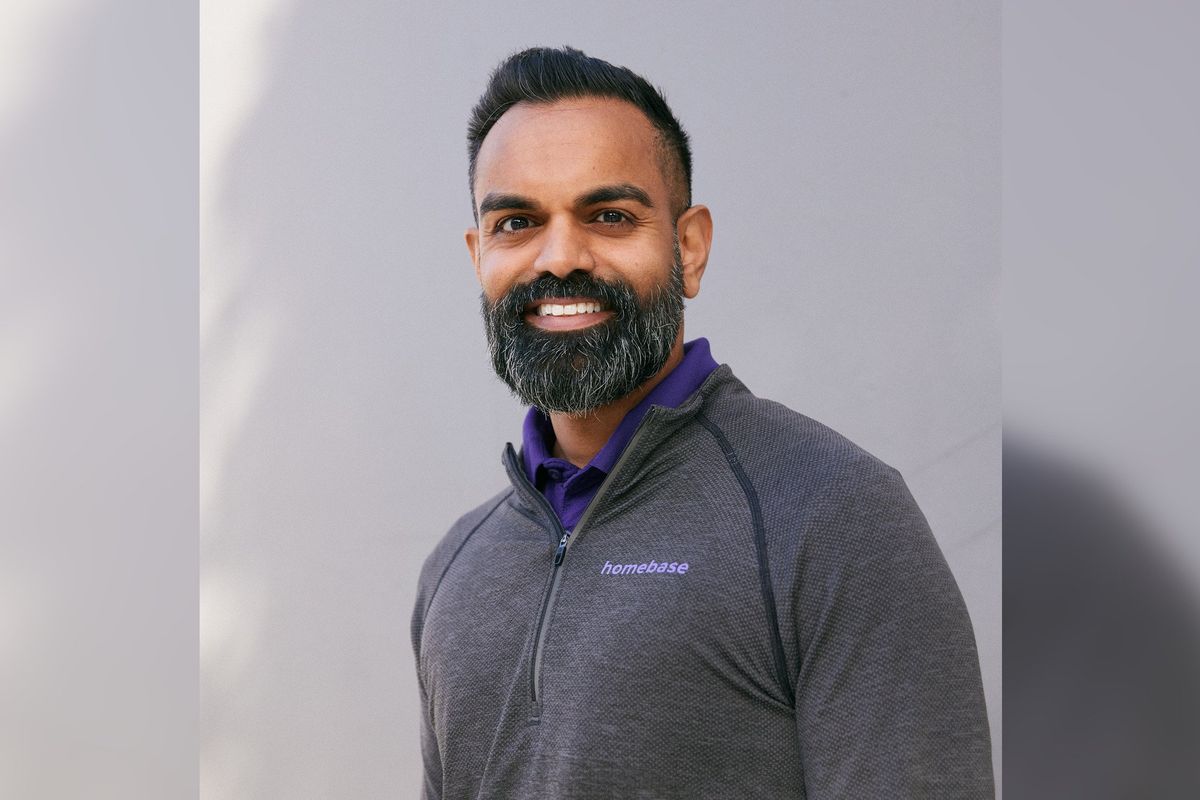Editor's note: Every week, I introduce you to a handful of Houston innovators to know recently making headlines with news of innovative technology, investment activity, and more. This week's batch includes a podcast with a tech founder supporting small businesses, a mom designing next-generation bibs, and two energy tech collaborators.
Rushi Patel, co-founder and COO of Homebase

Rushi Patel, co-founder and COO of Homebase, joins the Houston Innovators Podcast in honor of National Small Business Week. Photo courtesy of Homebase
For decades, small businesses have operated in essentially the same manner — handwritten notes to request time off, manual punch cards to clock in, and verbal agreements to swap shifts. And 10 years ago, Houstonian Rushi Patel thought it was time to upgrade these local shops, eateries, and other businesses.
Homebase, which was founded in San Francisco in 2014 and has its largest office in Houston, provides a suite of software tools for employee scheduling, time tracking, communication, and task management for its users, most of which are small businesses.
After a decade of growing its technology and clientbase, Patel, co-founder and COO of the company, explains the unique challenges these small businesses face on the Houston Innovators Podcast — as well as how Homebase helps.
"It's a bit of an orchestra in terms of what entrepreneurs have to do. Your job is to compose a little, but conduct as well," Patel says on the show. "You've built the song of what you want to have happen, but you're conducting lots of different things to make it a reality as a small business owner." Read more.
Ashley Gooch, co-founder of Babynetic

Using a patented magnetic closure, Babynetic's bibs are designed to snap and stay secured while holding up to four pounds of food. Photo courtesy of Babynetic
Ashley Gooch has taken her entrepreneurial spirit from the fitness studio to the finger foods.
The Houston-based founder of high-end cycling studio RYDE and mom of three has launched a new baby gear brand, Babynetic. The company debuted its first product this month: the Babynetic bib.
Using a patented magnetic closure, the colorful platinum-grade silicone bibs are designed to snap and stay secured while holding up to four pounds of food. The snap is intended to be easy for parents to use, but more difficult for messy little hands to remove without assistance.
“As busy moms ourselves juggling careers and with five kids between us, we needed baby gear we could rely on,” Gooch said in a statement.Read more.
Grace Rodriguez of Impact Hub Houston and Juliana Garaizar of Energy Tech Nexus

Grace Rodriguez (left) and Juliana Garaizar have partnered up — along with their teams — to collaborate on the Equitable Energy Transition Alliance and Lab.
A group of Houston's innovation and energy leaders teamed up to establish an initiative supporting equitability in the energy transition.
Impact Hub Houston, a nonprofit incubator and ecosystem builder, partnered with Energy Tech Nexus to establish the Equitable Energy Transition Alliance and Lab to accelerate startup pilots for underserved communities. The initiative announced that it's won the 2024 U.S. Small Business Administration Growth Accelerator Fund Competition, or GAFC, Stage One award.
"We are incredibly honored to be recognized by the SBA alongside our esteemed partners at Energy Tech Nexus," Grace Rodriguez, co-founder and executive director of Impact Hub Houston, says in a news release. "This award validates our shared commitment to building a robust innovation ecosystem in Houston, especially for solutions that advance the Sustainable Development Goals at the critical intersections of industry, innovation, sustainability, and reducing inequality." Read more.

 Apple doubles down on Houston with new production facility, training center Photo courtesy Apple.
Apple doubles down on Houston with new production facility, training center Photo courtesy Apple.